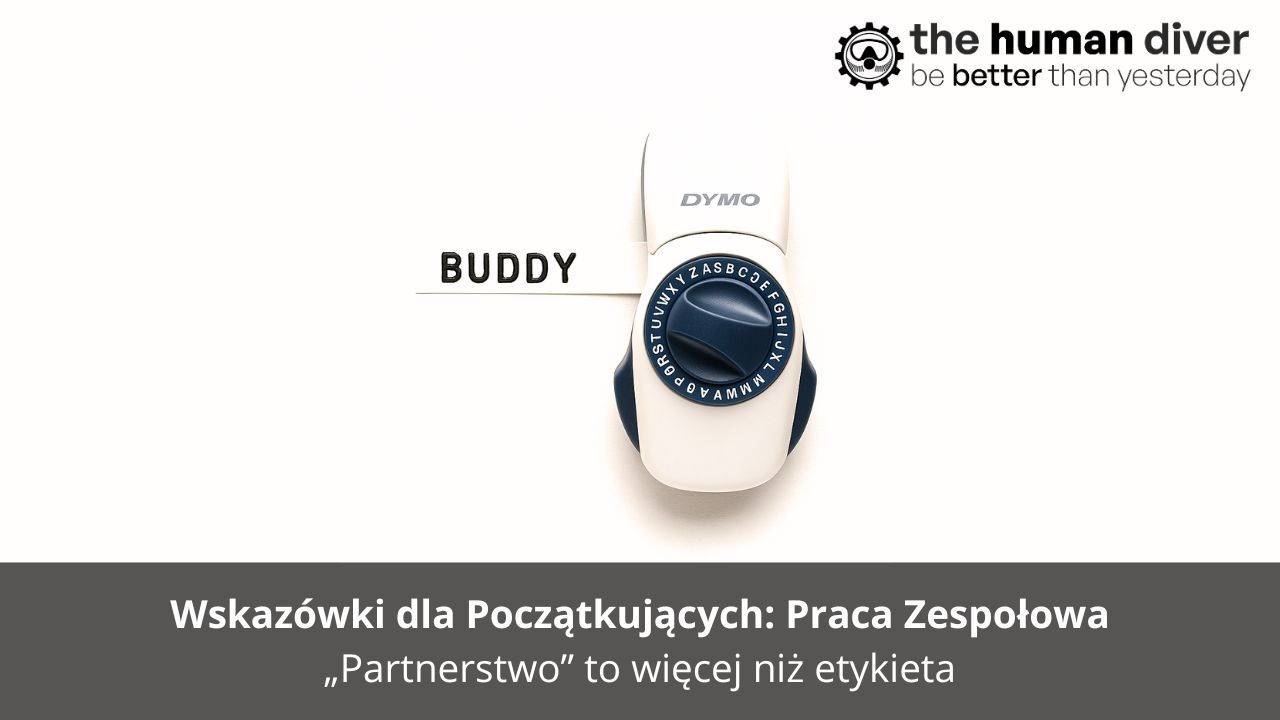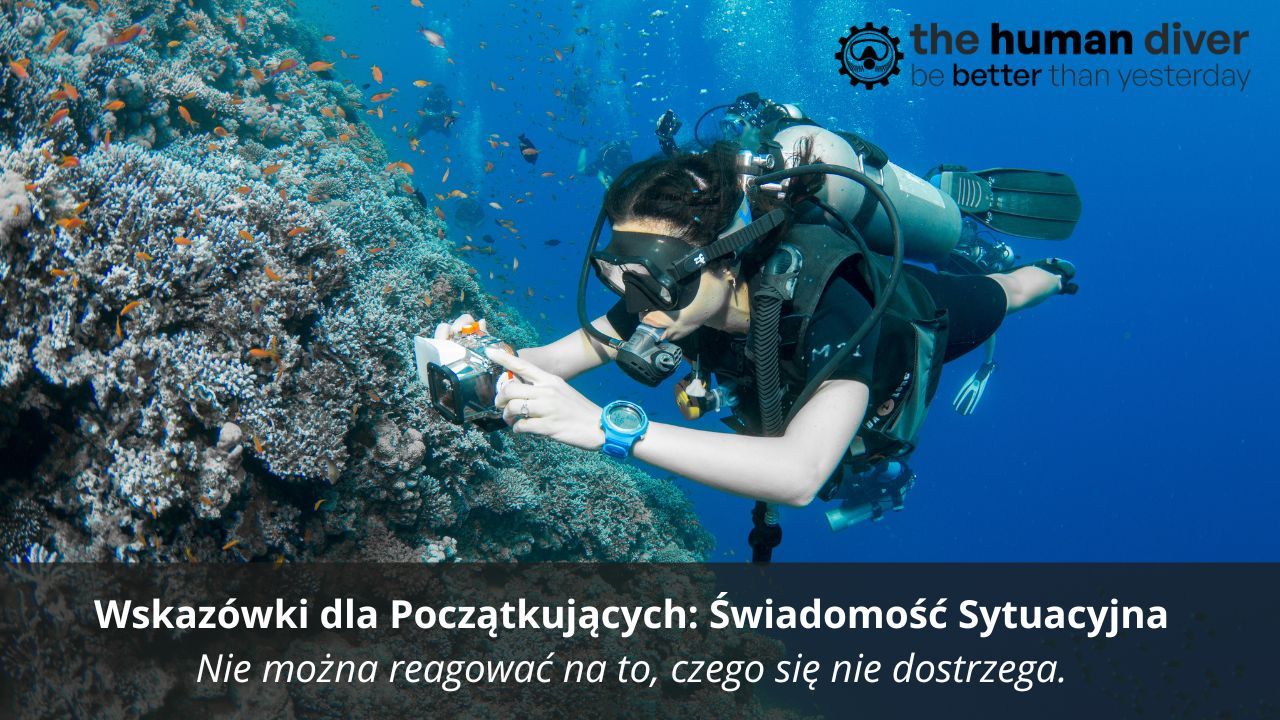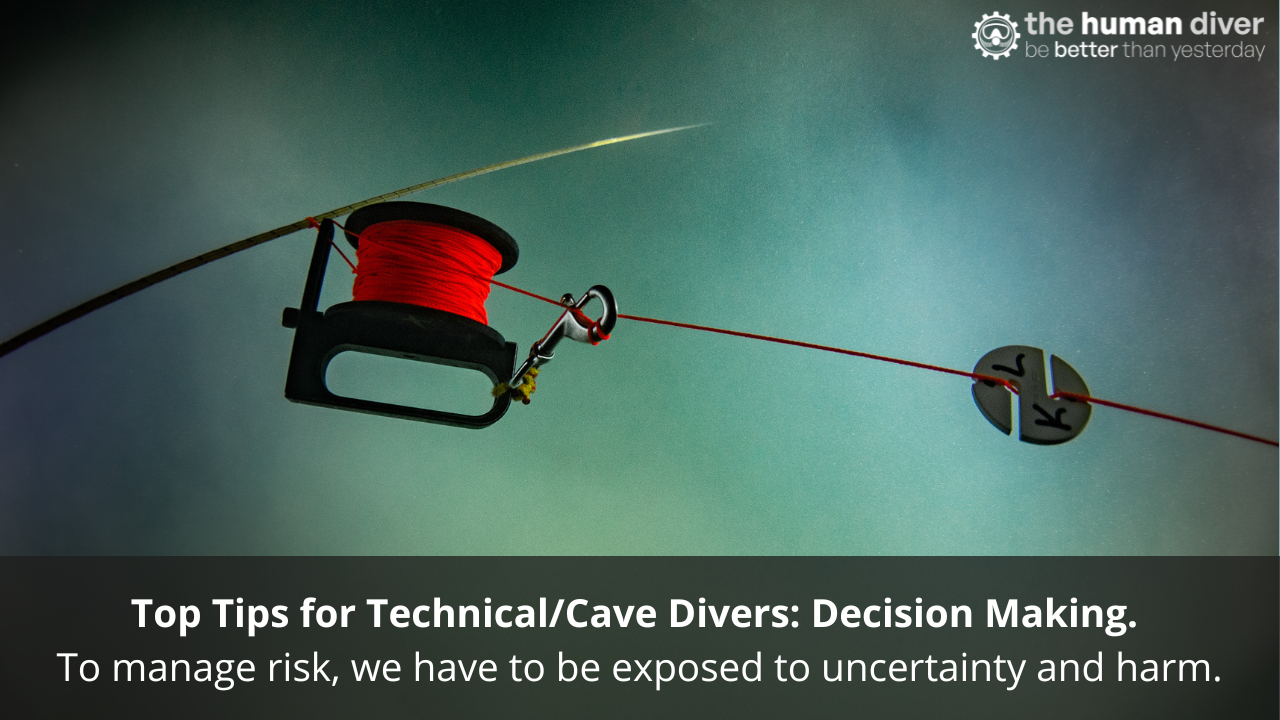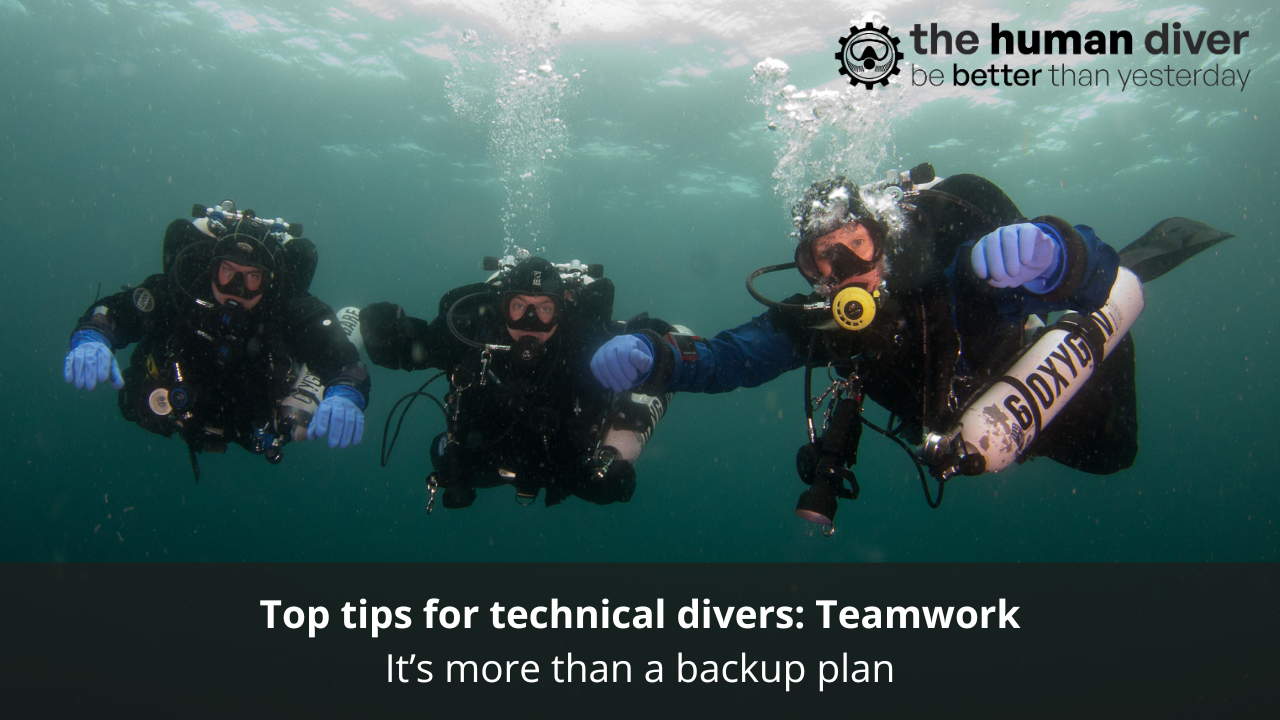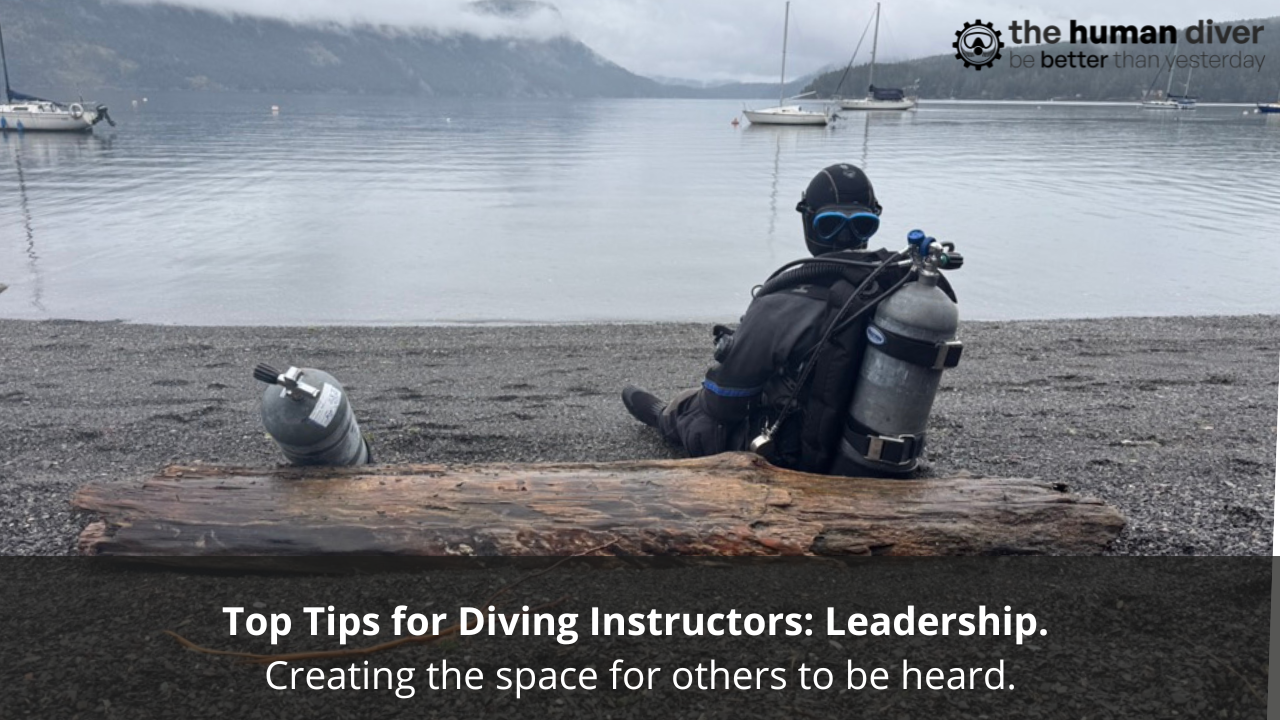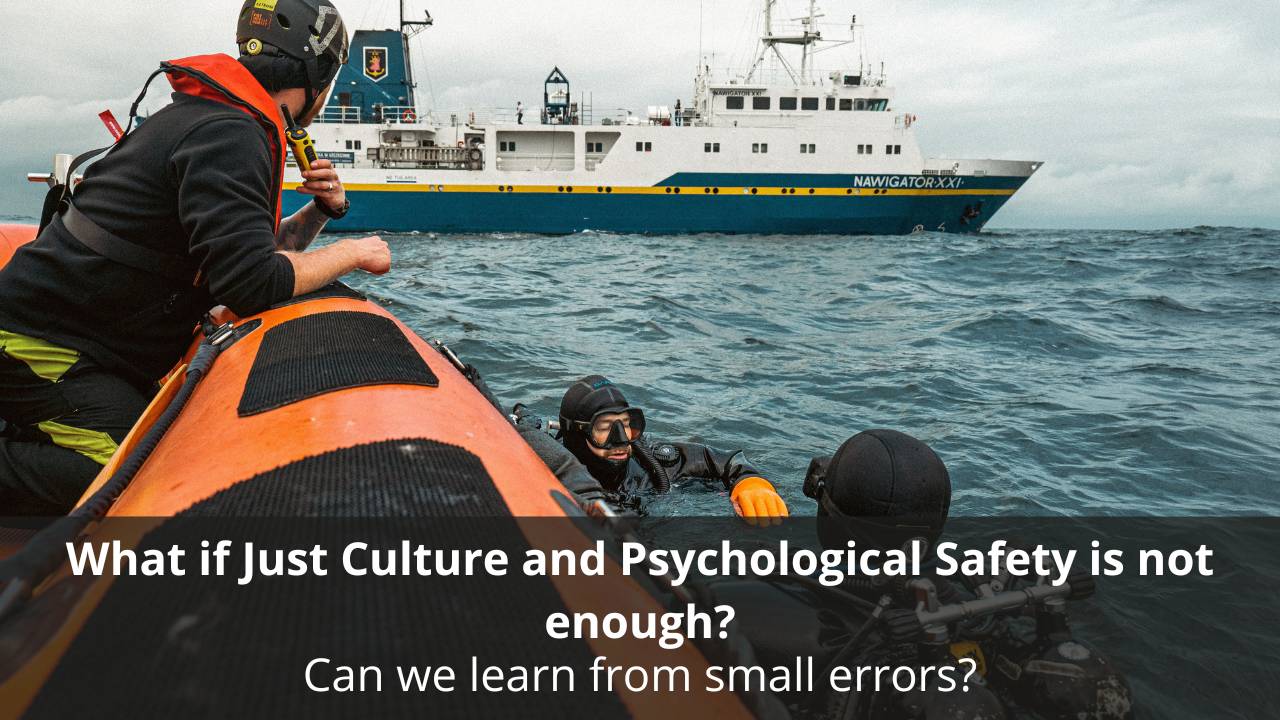
What if Just Culture and Psychological Safety is not enough?
Feb 25, 2025Diving in the Baltic Sea
We weren’t diving for pleasure. We had a job to do—marking and documenting selected large elements of a wreck. The pressure was immense. Many factors had to align perfectly at the same time: the team of professional divers, the ship’s crew, the support boats, and the weather conditions. Everything had to come together at once. The entire project was funded by a television station, so they were keen to get the footage. We had to be the first in the water.
Due to a bad weather forecast and technical issues with the ship we were operating from, our preparation time was cut short. Instead of the planned two hours, we were given just 40 minutes. Our attempts to negotiate and explain the risks were futile. The message was clear: either we were ready in 40 minutes, or there would be no diving that day. Since it was the final day of the project, the pressure mounted. We wanted to complete our task successfully. There was no time for anything—we had to quickly suit up, grab our gear and video equipment, and get in the water as fast as possible.
From a deck six meters above the water, we were lowered in a special cage suspended from a crane. As we descended, we hurriedly secured our equipment. The water was rough, with a strong current. It was pushing us away from the buoy with the descent line, so we kicked hard to reach it. Just a little farther... one more meter… there! The waves crashed over the buoy, and the current was pulling us away, but I held onto the line. My buddy, carrying his camera rig, reached the buoy. I descended slightly to make room for him. Turning toward the surface, I signaled “OK.” He responded with the same sign. Then, as I started descending further, I suddenly felt my buddy grab my arm and shake it forcefully—an unmistakable emergency signal that something was very wrong.

Just Culture
One of the most significant shifts in my perspective on diving safety was realizing that it’s not “bad” people who make mistakes, but rather “good” people operating in a complex and fragile system. Our efforts should focus on making that system safer. Unlike industries such as aviation, medicine, or nuclear energy, the diving industry is unregulated. There is no regulatory body, and divers are largely left to their own devices. There is also no official institution analyzing diving incidents and accidents. No reporting system exists where data could be gathered to identify trends, such as “beginner divers struggle with buoyancy control.”
This is why sharing our experiences is so crucial—not just among divers but especially among instructors and dive leaders. We all know how difficult it is to talk about our own mistakes and poor decisions. We rarely discuss dives where things went wrong. Why? Because we fear being labelled as incompetent, untrained, weak, or even foolish.
James Reason described this as the “sensitive system syndrome,” a condition that affects organizations where frontline workers are blamed for errors while systemic factors are ignored. This inevitably leads to individuals hiding mistakes, reducing an organization’s ability to learn from them. A just culture shifts the focus from blaming individuals to understanding how their actions made sense to them at the time. This perspective allows us to identify the root causes and conditions that contribute to errors, which is the first step toward making improvements.
Focusing solely on an individual’s mistakes or decisions doesn’t help. We see the same issues repeated time and again. Simply stating that pre-dive checks were not performed, the briefing was inadequate, or the divers became separated underwater does not explain why these things happened. To understand a dive, we need to explore the full context—how divers typically prepare, what is considered acceptable behaviour, and what external pressures influence decision-making. We need open conversations and people who are willing to share their experiences without fear of judgment.
Divers who talk about their mistakes—or even about times they were lucky that things didn’t go worse—offer valuable lessons to others. A just culture, free from blame and judgment, creates an environment where learning can take place. The next time we hear about divers who “did something stupid,” we should ask ourselves: How did it make sense to them then?
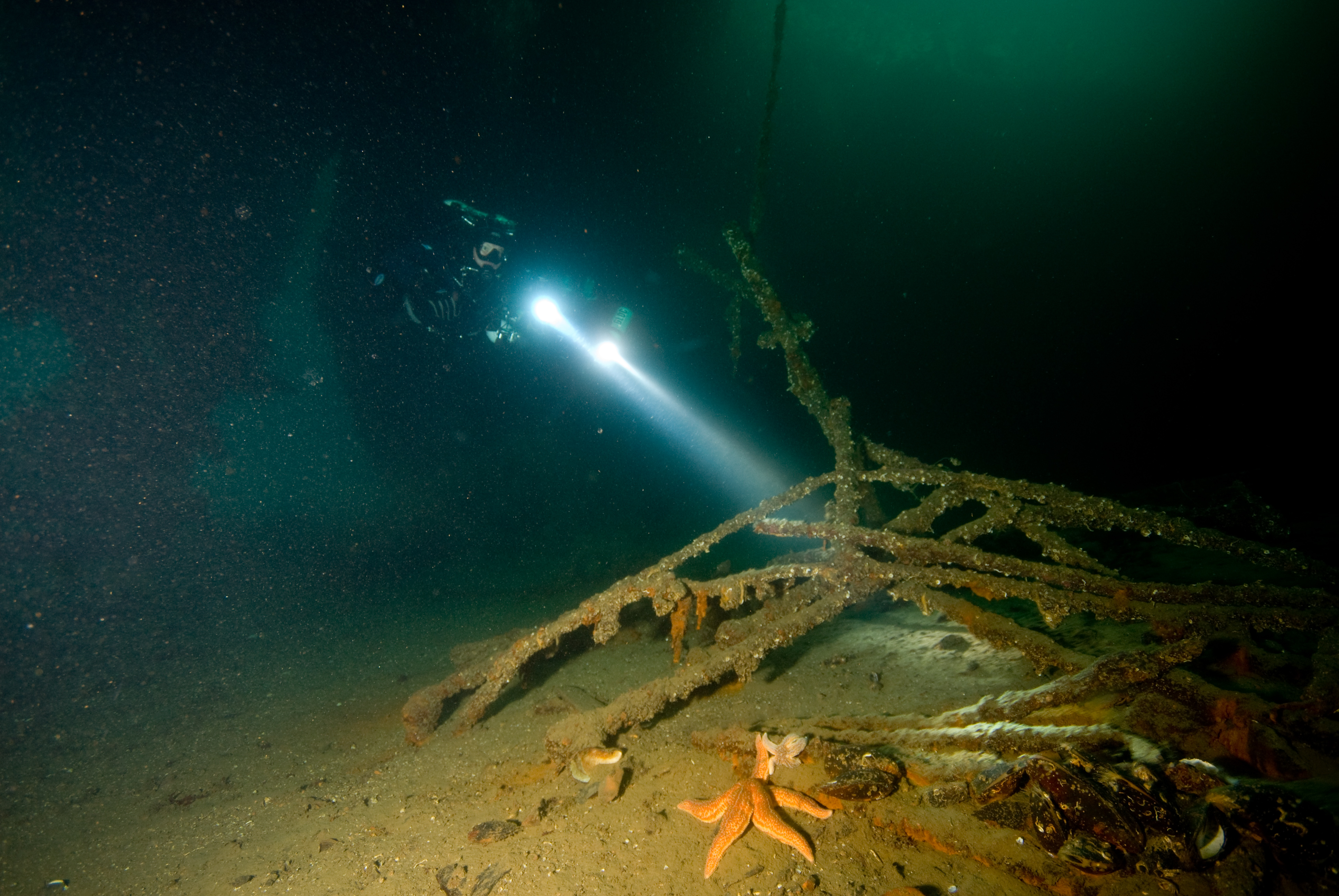
I saw my buddy clinging to the descent line. One arm was draped over the rope, holding his heavy camera rig. He was struggling. I moved closer, making sure not to lose contact with the line. Visibility in the Baltic at this depth, despite the current, was no more than one meter. My buddy was trying to show me something on his back—or behind him. He made urgent gestures, pointing his thumb toward his tank. But I could see he was breathing normally, so it wasn’t a gas issue. I got even closer. Then it became clear—his dry suit inflation valve was not connected to the air supply. He was unable to add air to his suit, which meant that as he descended, the increasing pressure was compressing his suit, restricting his movements. I quickly found the hose and connected it to the valve.
On this dive, and in the preparation leading up to it, I made several mistakes. I accepted procedures and practices that I fundamentally disagreed with, yet I succumbed to the pressures around me. Hours of debriefing allowed us to identify many of these errors and poor decisions. Our mutual trust enabled an honest discussion and a collective analysis of what we wanted to change for the future. It also provided a solid foundation for adjusting our procedures. We certainly didn’t identify every mistake, but we learned a great deal.

Psychological Safety
Psychological safety protects us from errors—both the ones we are about to make and those we have already made but haven’t yet realized. Whether it’s about asking questions, expressing doubts about a dive plan, or expecting others to follow safety protocols—such as conducting proper buddy checks or labelling gas cylinders correctly—psychological safety plays a crucial role. We are divers, but above all, we are human: fallible, inconsistent, and susceptible to pressure. While pursuing our passion, we will make mistakes. Psychological safety means, first and foremost, allowing others to point them out to us. Because—yes—we might be unaware of something, we might not know how to improve, or we might simply not realize that we’re dragging a piece of equipment along the seabed behind us. We give others permission to inform us about our errors.
Secondly, as a team, we need to ensure that members feel comfortable making mistakes, raising concerns, and, most importantly, saying “STOP” when they see something wrong. This is about watching out for each other so that everyone can safely complete the dive—returning not only physically intact but also psychologically and emotionally secure.
If we foster a just culture and psychological safety within our dive team, then even after incidents where things went south, open discussions become easier.
Is That Enough?
In her book Teaming, Professor Amy Edmondson points out that a just culture and psychological safety alone may not be sufficient for continuous improvement. People naturally want to perform well. We strive to make our dives successful. This means we tend to correct minor errors on the spot, especially when it requires minimal effort and seems inconsequential.
However, tracing these small mistakes and understanding how they slipped through our procedures can provide valuable insights. What distracted me when I zipped my dry suit? Do I always check gas mixtures with my buddy? Did I prepare waterproof labels for my next dive?
Conclusion
A just culture allows divers to share knowledge and learn from experiences—not just their own. It requires discipline, humility, and curiosity. The goal is not to assign blame but to understand what systemic factors contribute to incidents. Just culture leads to better preparation for future dives.
Psychological safety reduces the risk of mistakes and increases the chances that someone else will catch them. It enables team members to ask questions, challenge decisions, and voice concerns. But these are skills that require continuous practice, reflection, and openness to feedback. Cultivating awareness, fostering good communication, and embracing these principles helps us all dive more safely.

Andrzej is a technical diving and closed-circuit rebreather diving instructor. He works as a safety and performance consultant in the diving industry. With a background in psychology specializing in social psychology and safety psychology, his main interests in these fields are related to human performance in extreme environments and building high-performance teams. Andrzej completed postgraduate studies in underwater archaeology and gained experience as a diving safety officer (DSO) responsible for diving safety in scientific projects. Since 2023, he has been an instructor in Human Factors and leads the Polish branch of The Human Factors. You can find more about him at www.podcisnieniem.com.pl
Want to learn more about this article or have questions? Contact us.

